The Great Game
- 576 páginas
- 21 horas de lectura
Tells the story of the "Great Game", the imperial, political, diplomatic and military operation in British India, stretching from the Caucasus in the west to Chinese Turkestan and Tibet in the east.
La escritura de Peter Hopkirk profundiza en las cautivadoras y a menudo anárquicas fronteras del Imperio Británico y más allá, impulsado por una fascinación de por vida por la historia y la geografía. Su extensa carrera periodística, marcada por asignaciones en regiones volátiles, junto con años de viajes por Rusia, Asia Central y Oriente Medio, infundieron en su obra una perspectiva única. Hopkirk fusionó magistralmente sus experiencias como reportero y corresponsal con una meticulosa investigación histórica, creando narrativas cautivadoras de aventura, espionaje y encuentros culturales. Inspirado en relatos clásicos de exploración, sus libros iluminan las complejas historias y los dramas humanos que se desarrollan en los márgenes de la civilización.

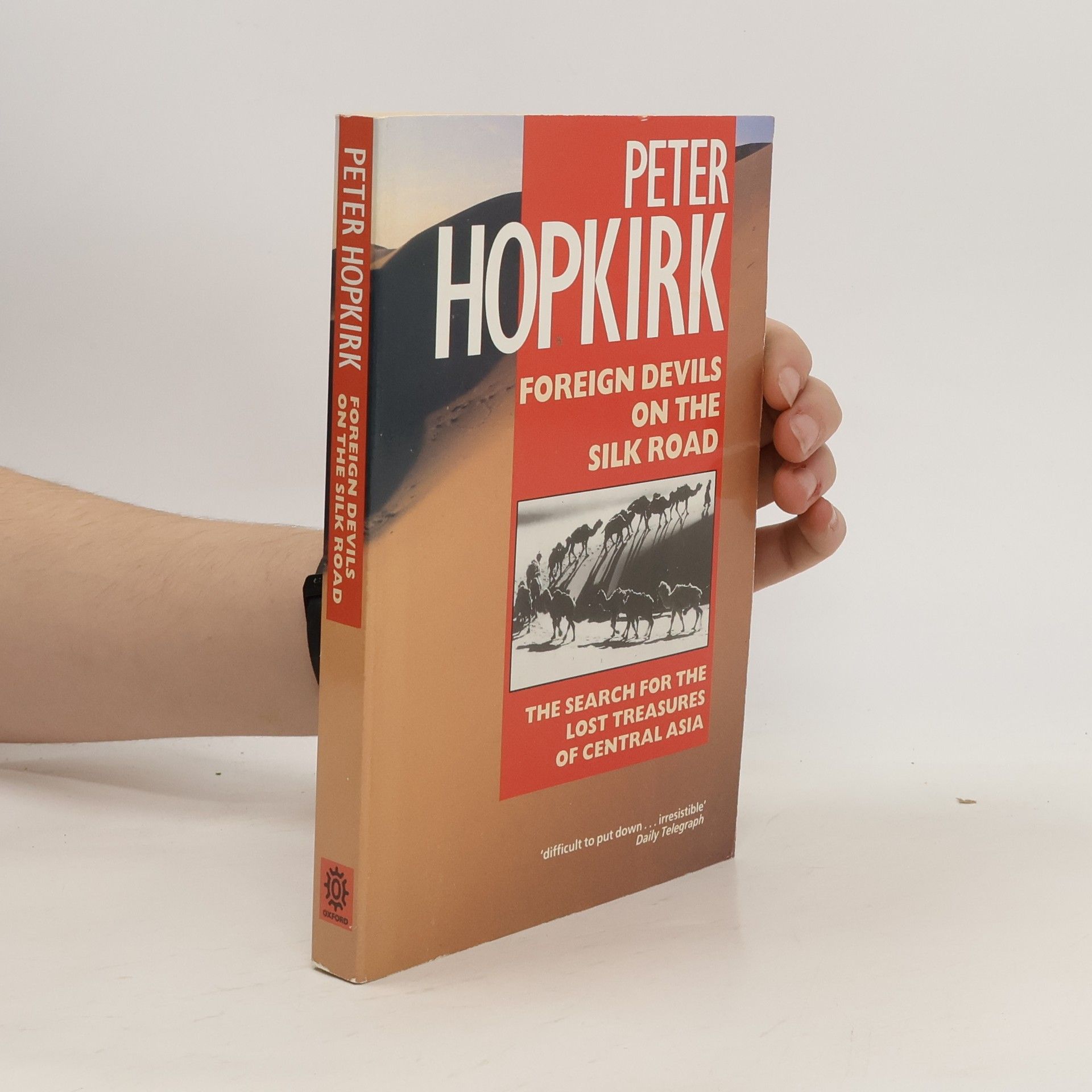
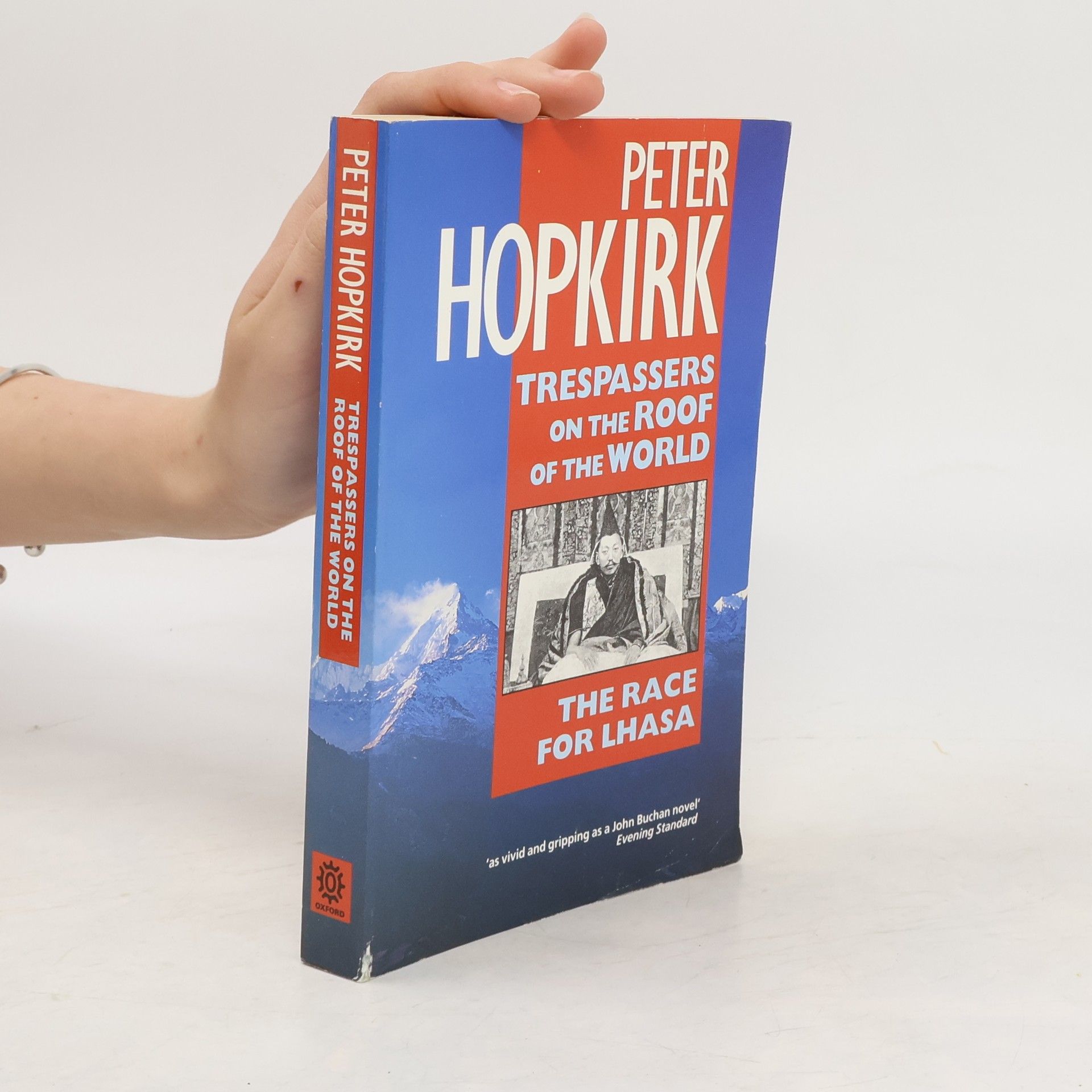
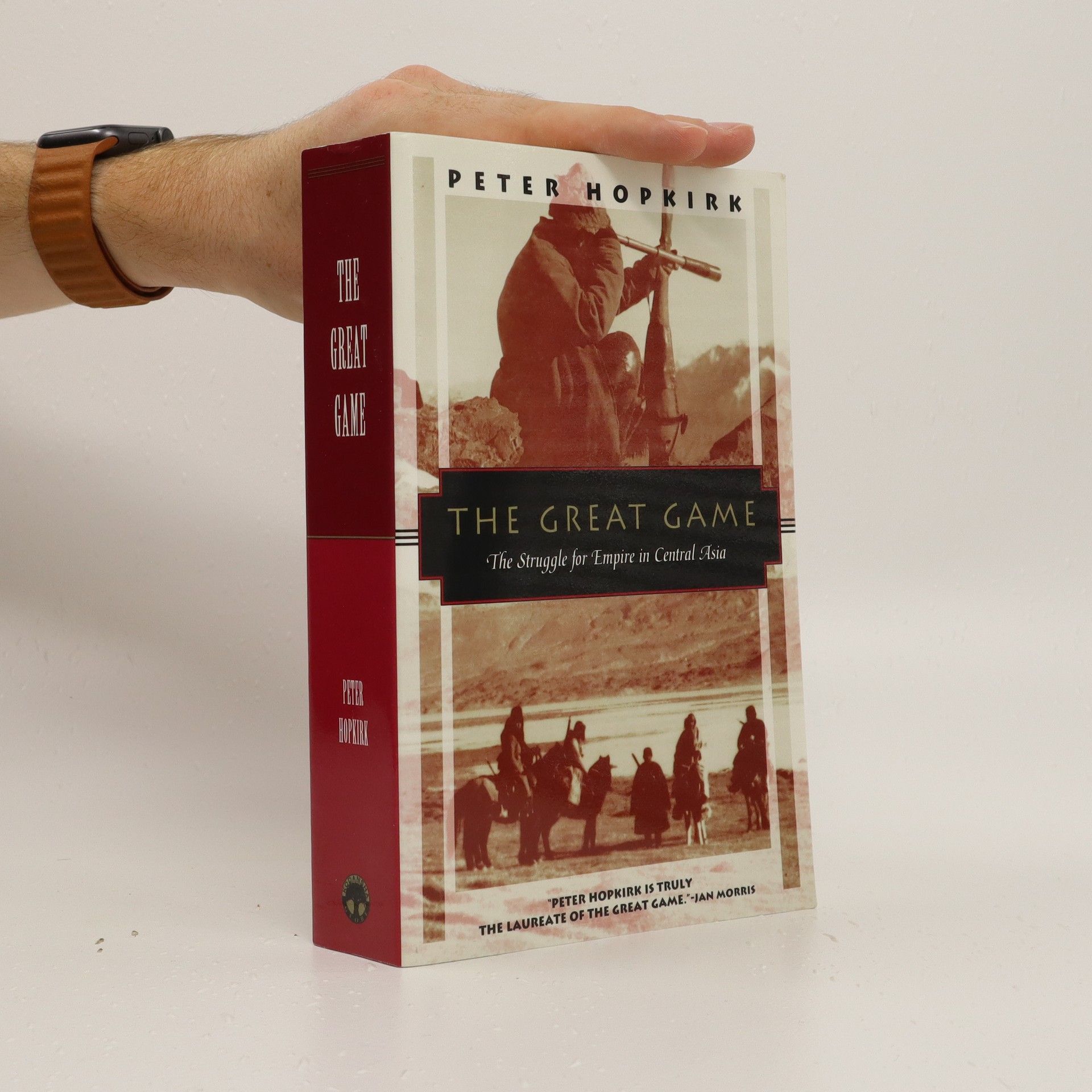
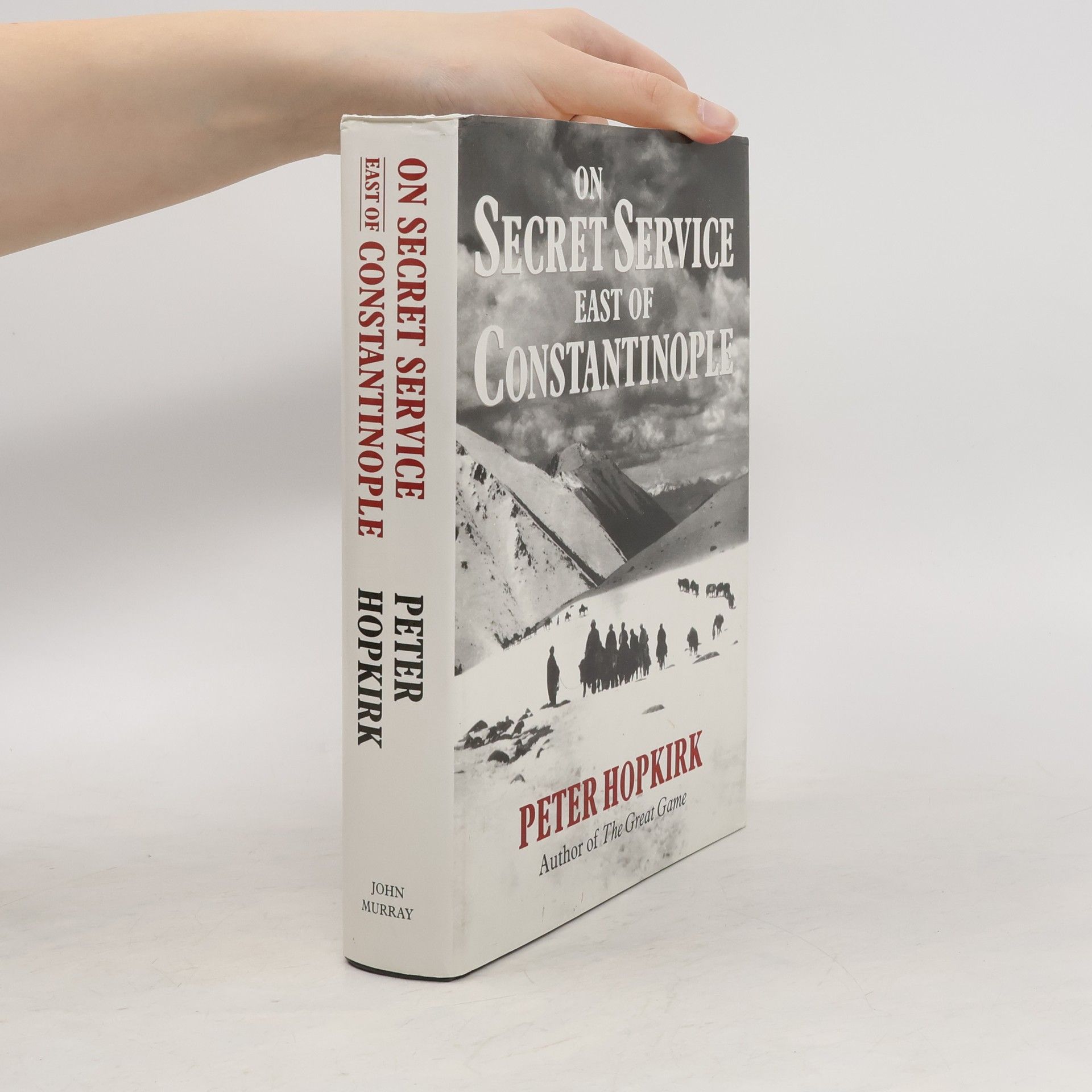
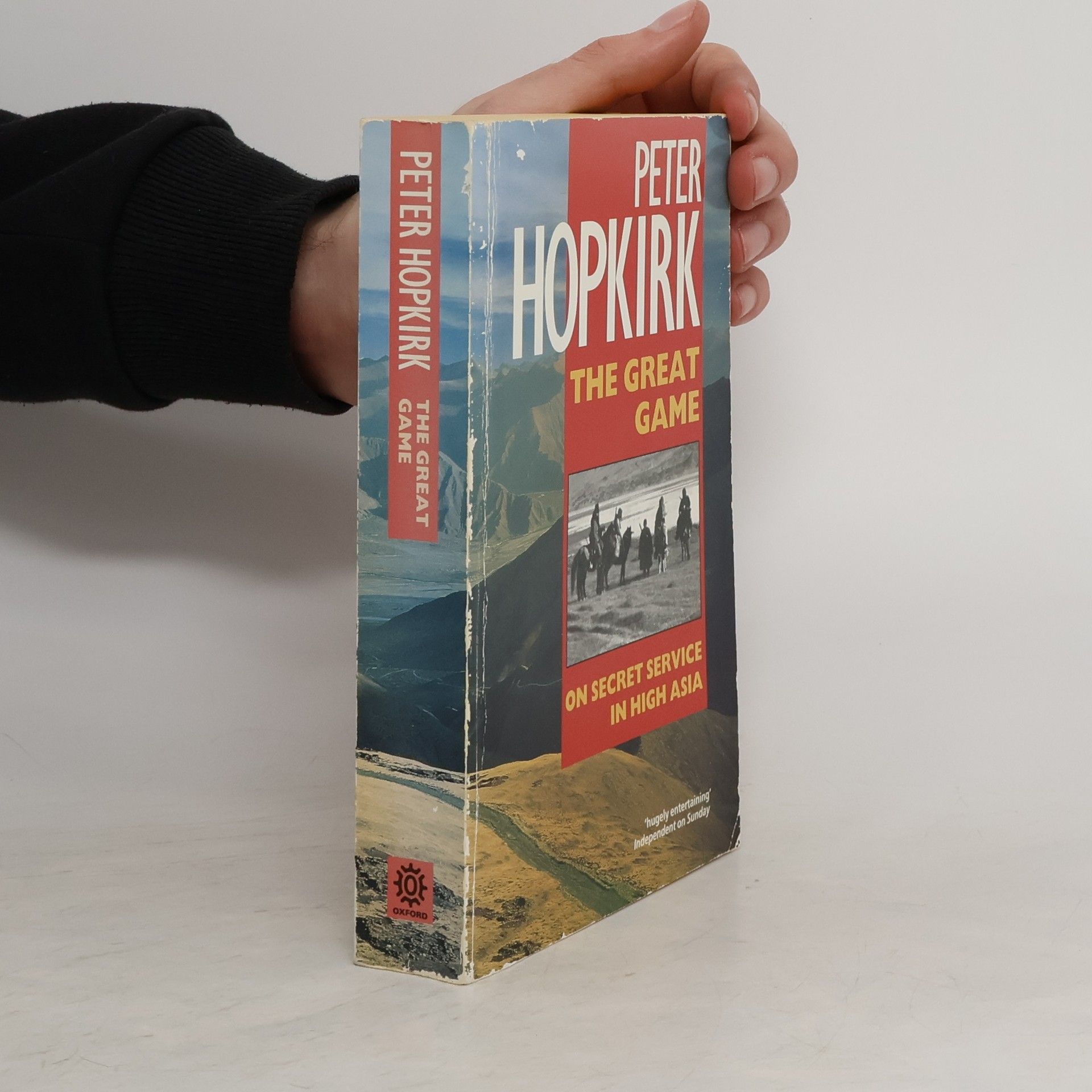
Tells the story of the "Great Game", the imperial, political, diplomatic and military operation in British India, stretching from the Caucasus in the west to Chinese Turkestan and Tibet in the east.
The Plot to Bring Down the British Empire
Under the banner of a Holy War, the Germans and Turks set out in 1914 to foment violent revolutionary uprisings against the British in India and the Russians in Central Asia. This is the story of the Turco-German jihad told through the adventures of the secret agents and others who took part in it.
For nearly a century the two most powerful nations on earth - Victorian Britain and Tsarist Russia - fought a secret war in the lonely passes and deserts of Central Asia. Those engaged in this shadowy struggle called it 'The Great Game', a phrase immortalized in Kipling's Kim. When play first began the two rival empires lay nearly 2,000 miles apart. By the end, some Russian outposts were within 20 miles of India.This book tells the story of the Great Game through the exploits of the young officers, both British and Russian, who risked their lives playing it. Disguised as holy men or native horsetraders, they mapped secret passes, gathered intelligence, and sought the allegiance of powerful khans. Some never returned.
Hidden behind the Himalayas, Tibet has always cast a powerful spell over travellers form the West. Peter Hopkirk recounts the forcible opening up of this medieval land during the nineteenth and twentieth centuries, and the race between nine different countries to reach Lhasa, Tibet's sacred capital.
The Silk Road, the great trans-Asian highway linking Imperial Rome to China, reached the height of its importance during the T'ang Dynasty. Along it travelled precious cargoes as well as new ideas, art and knowledge. Its oasis towns blossomed into thriving centres of trade. However, as the Chinese lost control of the region, it began to decline to the point where the towns disappeared beneath desert sands. Local legends grew of buried treasure guarded by demons.
In ultimately tragic narrative, Peter Hopkirk recounts the forcible opening up of Tibet during the 19th and 20th centuries, and the race between agents, soldiers, missionaries, mountaineers, explorers, and mystics from nine different countries to reach Lhasa, Tibet's sacred capital.
In 1933 Sir Eric Teichman and five colleagues undertook an epic journey to the Chinese province of Xinjiang in two ramshackle lorries. Their mission, to report back to the British Government on the confused situation in the Province which had been virtually taken over by the Russians - is part of the story, but the fascination of the book lies in Sir Eric's gripping account of their 2,500 mile journey, one of the pioneering feats of early motoring. This new edition includes an Introduction by Peter Hopkirk.
Peter Hopkirk's book tells for the first time the story of the Bolshevik attempt between the wars to set the East ablaze with the new gospel of Marxism. Lenin's dream was to liberate the whole of Asia, but his starting point was British India. A shadowy, undeclared war followed.Among the players in this new Great Game were British Indian intelligence officers and the professional revolutionaries of the Communist International. There were also Muslim visionaries and Chinese warlords - as well as a White Russian baron who roasted his Bolshevik captives alive. Here is an extraordinary tale of intrigue and treachery, barbarism and civil war, whose echoes continue to be heard in Central Asia today.
'A fascinating, brilliantly written book' Times Literary Supplement
In this remarkable book Colonel F.M. Bailey, the last true player of the Great Game, tells of the perilous game of cat-and-mouse, lasting sixteen months, which he played with the Bolshevik secret police, the dreaded Cheka.